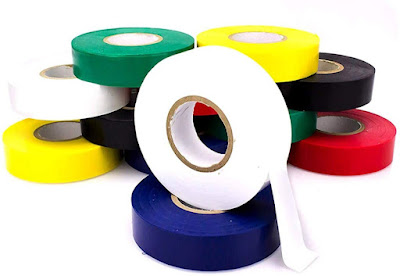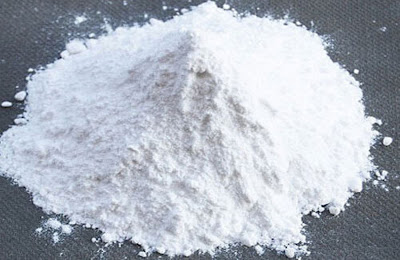Adhesive Tapes: Versatile Bonding and Joining Solutions
Introduction to Adhesive Tapes
Adhesive tapes, also known as pressure-sensitive tapes, are flexible bonding
materials consisting of an adhesive coated onto a backing material such as
cloth, plastic film or paper. The adhesive is bonded to one side of the
backing, while the other side is left free of adhesive coating so that it can
be easily applied to any surface.
Types of Adhesive Tapes
Packaging Tapes
Packaging tapes are one of the most common types of adhesive tapes used for
sealing and securing packages during shipping and storage. Some key packaging
tapes include packing tapes, filament tapes and strapping tapes. Packing tapes
are used for closing cardboard boxes and cartons. Filament tapes have strong
adhesive and are used for heavy-duty applications like securing pallets.
Strapping tapes are used with plastic strap to bundle items together.
Duct Tapes
Duct tapes, also known as duck tapes, are cloth or foil backed adhesive tapes
often used for sealing and repairing heating, ventilation and air conditioning
(HVAC) systems. Their high adhesion and strength properties make them suitable
for a wide variety of repairs and craft projects as well. Premium grade duct
tapes offer moisture resistance for indoor and outdoor applications.
Electrical Tapes
Electrical tapes are made of materials that provide insulation and protection
from short-circuits and electrocution. These Adhesive
Tapes have anti-abrasion backings and are available in different colors
to identify various wire connections and circuits. Common electrical tapes
include PVC tapes, rubber and silicon tapes.
Masking Tapes
Masking tapes are low adhesion tapes used to mask off surfaces temporarily
during painting, finishing or repair processes. Their easy removal property
prevents damage to the underlying surface. Professional painters prefer
fiberglass or paper backed masking tapes for intricate masking jobs.
Medical Tapes
Medical tapes form an integral part of dressings, bandages and splints used for
wound care and injury treatment. Some key medical tapes are surgical tapes,
adhesive bandages, microporous tapes and transpore tapes. Surgical tapes
havebreathablebackings and are used during skin closure. Adhesive bandages
protect small cuts and abrasions.
Automotive Repair Tapes
In the automotive industry, various adhesive tapes are used for repairs,
insulation, masking and vibrating dampening. Repair tapes help fix tears in
vinyl, neoprene and rubber hoses effectively. Electrical insulation tapes wrap
wires and connectors securely. Masking tapes outline paint areas precisely.
Vibration dampening tapes suppress sound and vibration in vehicle cabins and
engine compartments.
Properties of Adhesive Tapes
Adhesion
Adhesion refers to the bonding strength of a tape's adhesive to various
surfaces. Factors like adhesive chemistry, tape thickness, contact pressure,
temperature and surface preparation affect the tape's adhesion properties.
Pressure-sensitive adhesives in tapes bond to surfaces through interatomic and
intermolecular attractive forces.
Bond Strength
Bond strength indicates how strongly the adhesive will hold the tape in place
over time under the influence of different conditions. High performance tapes
demand greater bond strength to withstand environmental stresses, temperature
extremes, moisture, vibration etc. Adhesives are engineered to deliver optimal
bond strength matched to the intended application.
Tack
Tack denotes the ability of an adhesive to form a bond by brief contact under
light pressure. Tapes with high tack form instant bonds, while low tack tapes
are easy to reposition before bonding completely. Tack depends on factors like
glass transition temperature of the adhesive and its chemical makeup.
Peel Strength
Peel strength measures the force needed to remove a bonded tape from a surface
in a 180° direction. Resistance to peeling stresses the durability of the
adhesive bond. High peel strength in tapes withstands pulls and shearing forces
over the long run.
Shear Strength
Shear strength characterizes a tape's resistance to parallel forces that could
cause the bond to break or slip. Stiff backings and aggressive adhesives impart
greater shear strength to tapes, making them suitable for demanding mounting
and joining applications with lateral stresses.
Temperature Resistance
According to its construction, an adhesive tape can tolerate only a certain
temperature range before its bonding ability deteriorates. Temperature extremes
can soften, weaken or harden adhesive compositions, altering a tape's
functionality. Temperature resistance is an important selection factor.
Advancements in Adhesive Tape Technology
Innovations in adhesive science and raw materials have enabled constant
enhancements in tape design and performance over the years.
Improved Adhesives - Adhesives are being compounded with new acrylics, rubbers
and silicones to deliver better bonding on difficult surfaces, higher strength,
resistance to heat, moisture and chemicals.
Thinner Backings - Today's thin and conformable plastic and paper backings add
minimal bulk while allowing tape application on uneven contours. Thinner
cross-section also reduces material usage.
Specialty Liners - Release liners are custom-engineered using silicones,
polymers and coating treatments to provide easy tape unwind and improved
peel-off control for convenient dispensing.
Printed Tapes - Digital printing allows tapes to be custom-branded or coded
with logos, messages and graphics as per application needs. Pigmented inks make
patterned tapes feasible.
New Material Options - Besides paper and plastics, novel materials like foams,
hybrid films, nonwovens and nanomaterials are broadening tape designs. Evolving
materials improve performance attributes.
Automation - Technologies like laser and rotary cutting automate tape contour
cutting, bulk slitting and sheeting processes while upholding precision and
minimizing wastage during manufacturing.
Get More Insights on Adhesive Tapes




Comments
Post a Comment